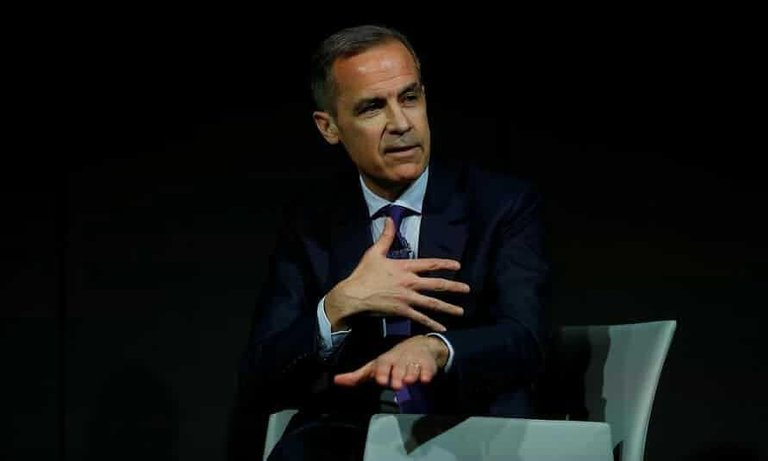
Cryptocurrencies inherently risky and fail most basic function as money, says Mark Carney
The Bank of England has warned that bitcoin faces a regulatory crackdown, warning that “inherently risky” cryptocurrencies are failing to fulfil their most basic function as money.
Mark Carney, the Bank’s governor, used a speech in London on Friday to attack a situation of “anarchy” in the trading of cryptocurrencies, with the market having grown rapidly on unregulated exchanges. He said the time had come to “regulate elements of the crypto-asset ecosystem to combat illicit activities”.
His warning comes amid growing efforts around the world to bring bitcoin under the control of central banks and governments, amid fears of consumers losing money at the hands of market manipulation. There are also growing efforts to curb the risk of cryptocurrencies being used for money laundering, financing terrorism and drug dealing.
Bitcoin hit almost $20,000 (£14,500) in value in the run-up to Christmas, before crashing by more than half earlier this year, although it has since recovered to almost $11,000.
Sign up to the daily Business Today email or follow Guardian Business on Twitter at @BusinessDesk
“Authorities are rightly concerned that given their inefficiency and anonymity, one of the main reasons for their use is to shield illicit activities. This cannot be condoned. Anarchy may reign on the dark web, but in the UK it’s just a song that your parents used to listen to,” Carney said, in a speech which will be seen as a major intervention by a top global regulator.
Threadneedle Street has been studying the risks posed to UK financial stability by bitcoin and other digital currencies, as well as the potential uses of the technology underlying them, for several years.
The Bank will present a report to the G20 in Argentina later this month, with Carney hinting at greater controls and also revealing that the central bank had tested ways to use cryptocurrency technologies at the core of the British payments system.

Mark Carney, the Bank of England governor
Mark Carney said authorities were right to be concerned about bitcoin. Photograph: Peter Nicholls/PA
Backers of bitcoin have said the underlying technology has potential to revolutionise the financial system and make everyday payments easier and cheaper. Carney said the central bank would continue to study the use of distributed ledger technology which underlies cryptocurrencies.
Guardian Today: the headlines, the analysis, the debate - sent direct to you
Read more
He said that, at present, bitcoin and other digital currencies “do not appear to pose material risks to financial stability” but that could change in future as more people begin to use them. “You worry about people that get caught up every time you have exploitative behaviour,” he said.
The governor’s comments follow repeated warnings from leading economists, finance industry bosses and other monetary authorities around the world. The European Union has warned it will regulate cryptocurrencies if its risks increase, while China has moved to shut down bitcoin exchanges and clamped down on initial coin offerings, where cryptocurrency tokens are sold to individuals.
Since you’re here …
… we have a small favour to ask. More people are reading the Guardian than ever but advertising revenues across the media are falling fast. And unlike many news organisations, we haven’t put up a paywall – we want to keep our journalism as open as we can. So you can see why we need to ask for your help. The Guardian’s independent, investigative journalism takes a lot of time, money and hard work to produce. But we do it because we believe our perspective matters – because it might well be your perspective, too.
I appreciate there not being a paywall: it is more democratic for the media to be available for all and not a commodity to be purchased by a few. I’m happy to make a contribution so others with less means still have access to information.
Thomasine F-R.
If everyone who reads our reporting, who likes it, helps fund it, our future would be much more secure. For as little as £1, you can support the Guardian – and it only takes a minute. Thank you.